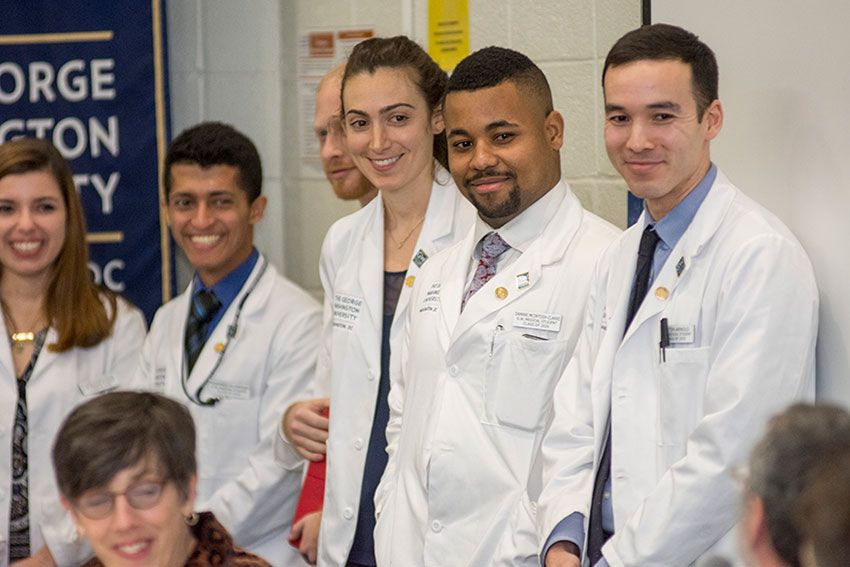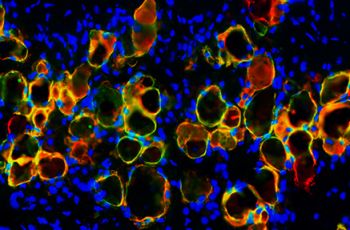
Innovative proposals from M.D. students at the George Washington University (GW) School of Medicine and Health Sciences (SMHS) created during 2015’s HIV clinical public health summit are now part of Washington, D.C.’s new HIV/AIDS Action Plan.
“The 90/90/90/50 Plan: Ending the HIV Epidemic in the District of Columbia by 2020” looks to ensure 90 percent of Washington, D.C. residents are aware of their HIV status, 90 percent of people with HIV get treatment, 90 percent of those in treatment achieve viral load suppression, and ensure that the city will see a 50 percent decrease in new HIV cases within three years.
During last year’s summit, GW student groups presented proposals on mobile applications and smart-cap pill bottle technology to improve patient engagement and medication adherence. Those proposals are now featured in the D.C. action plan to promote telemedicine approaches for adherence support.
Each year, SMHS clinical public health summits give students the knowledge and the practice of using their scientific and clinical knowledge to address community health and public health issues.
While the end goal is not necessarily that the proposals be included in any real-world actions plans, explained Lawrence “Bopper” Deyton, M.D. ’85, M.S.H.P., senior associate dean for clinical public health and professor of medicine at SMHS, “it’s a wonderful thing that the students are already being shown that their ideas are being respected by public health leaders.”
“Students should leave GW with knowledge and skills so their scope of practice as clinicians includes being able to speak to public health directors or heads of health systems, or mayors or governors or the president of the United States,” he added. “That’s why we’re incredibly proud of our GW students, who in their HIV summit from last year, come up with such creative and innovative ideas.”
Second-year M.D. student Erin Good, who was co-director of the Washington, D.C. group, which proposed the idea for the mobile app, said knowing the work put in by the students had such an impression on the panel is “cool to see.”
“To have the very unique opportunity at GW to really see public health in action as a doctor trying to advocate for a patient or for a community, that’s a really powerful thing,” she added.
The students in the group wanted to find a way to make the patient experience easier, Good explained. They discussed the technologies they used daily and realized there was no reason why those tools, such as mobile apps, couldn’t be designed to help HIV patients.
Michael Kharfen, senior deputy director of HIV/AIDS, Hepatitis, STD, and TB administration at the Department of Health in Washington, D.C., was one of the experts who met with students to discuss the needs of the communities for which they were tasked with developing proposals. During discussions for the action plan Kharfen recalled the students’ unique ideas from SMHS summit presentations.
“These [students are] on the first leg of a journey, and it’s tough, it’s very demanding intellectually, and yet they have so much enthusiasm for this project,” Kharfen said. “It’s really refreshing … to have this very creative and open expression of ideas around the work that you do.”
Deyton added that future summits will continue to teach the importance of understanding clinical public health issues so students can apply their clinical knowledge and understanding of patients and their families to solve problems in their communities.
“Whether students become pediatricians, primary care providers, orthopedic surgeons, brain surgeons, or pathologists, there are public health, population health, and health policy issues that are very important to each discipline,” he said. “Every student needs to have this experience and use these skills in order to be a successful practitioner in the 21st century.”


